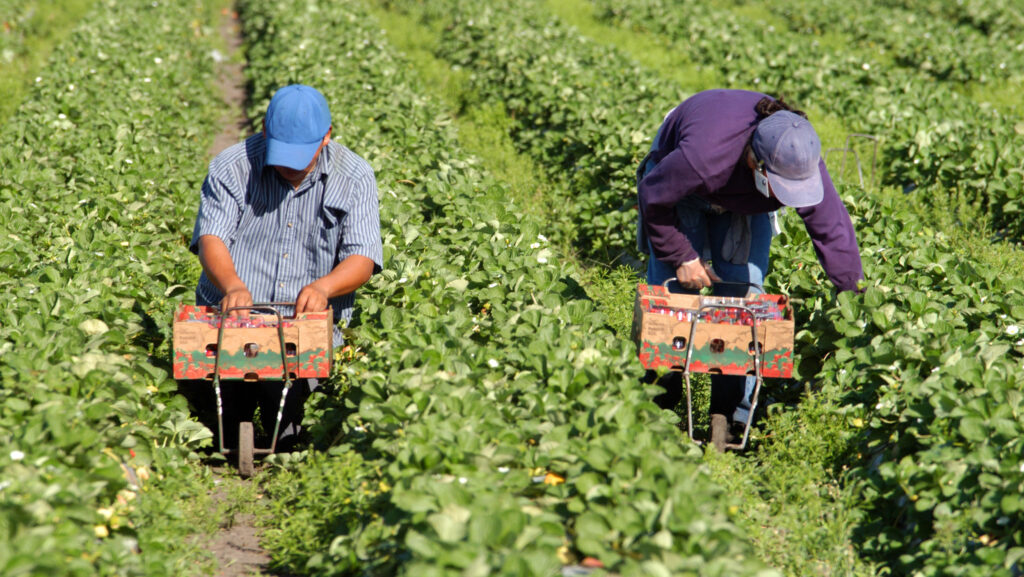Horticulture sector dismayed by cuts to migrant worker visas
 © Adobe Stock
© Adobe Stock Soft fruit and vegetable growers have expressed their disappointment that the number of migrant workers available for picking duties in 2025 will be reduced.
A government statement issued on Monday (21 October) revealed that some 43,000 temporary visas will be allocated in 2025 under the Seasonal Worker Scheme (SWS) for horticulture, compared with 45,000 this year.
Defra has also confirmed that 2,000 visas will be available for the poultry sector next year – the same as in 2024.
See also: Fruit and veg growers oppose planned audit changes
Defra farming minister Daniel Zeichner said “This government recognises that food security is national security, and this can only be achieved by supporting food and farming businesses.
“Confirming the seasonal worker visa allocation for 2025 gives growers and producers certainty, allowing them to plan ahead and secure the labour they need to grow and thrive.”
British Growers Association chief executive Jack Ward said it was a relief to have confirmation that the SWS is to continue.
“It is essential scheme operators now press on with recruitment,” he said.
“We are not actually that far from the start of the new season, with strawberries grown under glass ready for picking as soon as February.”
Unfortunate
But the reduction in the number of visas was unfortunate.
“We were told there would be a tapering down in the number of visas, but this was supposed to be linked to the development of technology in the sector to reduce our dependence on migrant workers.
“No one in the sector is anywhere near that point yet.”
Mr Ward said it was also a concern that the Labour government had offered no longer-term commitment to the scheme, despite the announcement by the previous government in May that the SWS would continue until 2029.
A Defra spokesman, however, explained that the 43,000 figure was based on negotiation with the Home Office and took into account the fact that just 34,332 visas were actually issued for 2024.
The 43,000 figure allowed for annual variability, plus some headroom for growth.
Extend visas
As well as needing greater certainty, Mr Ward said there was a strong case to extend the visa from six to nine months.
“As the sector becomes more consolidated, we find growers with a wider range of fruits and therefore a much longer season.
“The constant changing of the workforce when visas run out can be very hard to manage.”
Mr Ward added that, in some sectors such as mushroom growing, it can take 12 weeks to train pickers, “so longer visas would help”.
Seasonal Worker Survey
As well as confirming the number of visas for 2025, Defra has published the results of the 2023 Seasonal Worker Survey.
This shows that the vast majority of respondents (91%) reported a “positive” experience from their time in the UK, while 95% expressed a desire to return.
This compared with 86% “positive” and 91% “would return” in the previous year’s survey.
Of the 13,911 individuals who responded to the survey, those from Kyrgystan accounted for one-third, with strong representation also from Kazakhstan and Uzbekistan.
The one area of particular complaint was in relation to poor accommodation.
“The caravans are in a deplorable condition,” said one worker.
“There is a heating appliance, but we’re not allowed to turn it on, and it’s cold. We used our own portable heaters. We cooked on the stove.”
Generally, there were very few formal complaints – just 3% – though 10% said they had grievances that they did not report.
Defra said it was working hard with industry to improve the overall levels of satisfaction through its farm compliance checks, “to ensure sponsors are adhering to their duties and undertaking welfare checks on workers,” said the Defra statement.
